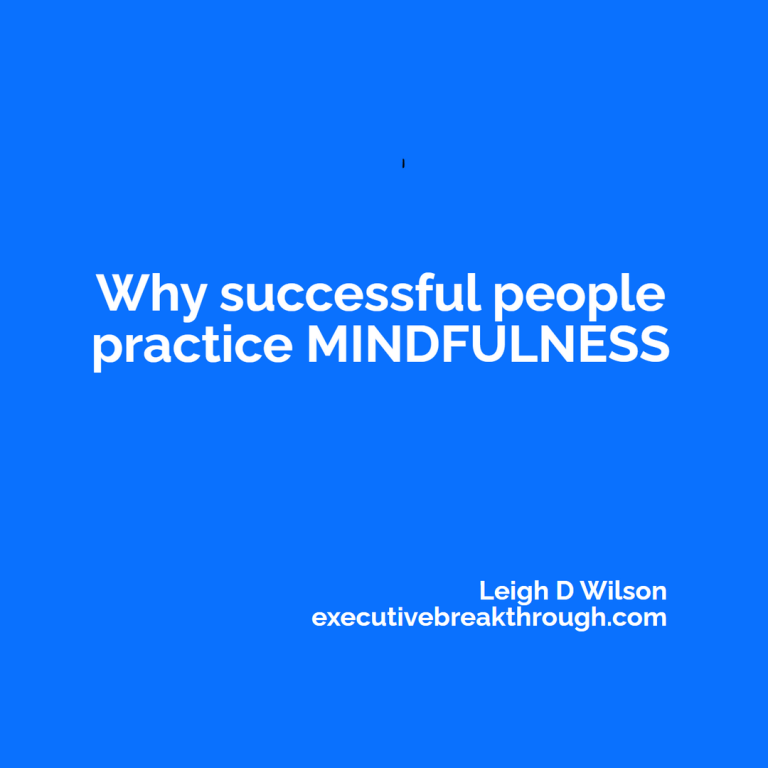In the hustle and bustle of today’s fast-paced world, it might surprise you to know that many highly successful people have one thing in common: the practice of mindfulness. Sure, it might seem like an “airy-fairy” concept, but the benefits are concrete and backed by scientific evidence. Here’s why successful individuals make mindfulness a cornerstone in their lives.
Boosts Focus and Attention
We are constantly being confronted with distractions in this digital age, making the ability to focus a priceless commodity. A study from Harvard University demonstrated that individuals who engage in mindfulness activities, such as meditation, can significantly improve their attention span and concentration. Success comes easier when you can focus your energy and attention on what truly matters.
Reduces Stress and Anxiety
The toll of stress and anxiety on your physical and emotional health can’t be overstated. According to the American Psychological Association, mindfulness can drastically reduce stress levels. Successful people understand the importance of a clear mind and often employ mindfulness techniques to navigate through the maze of high-pressure situations that come their way.
Enhances Emotional Intelligence
Many people think of success in terms of IQ or technical skills, but emotional intelligence (EQ) is equally crucial. Research published in the Journal of Applied Psychology found that practicing mindfulness helps increase EQ. This is particularly beneficial in leadership roles and interpersonal relationships, where understanding and managing emotions can make or break success.
Facilitates Better Decision-Making
Who hasn’t been paralysed by indecision at some point? When you’re successful, making the wrong move can have significant consequences. Studies, including one published in Psychological Science, have shown that mindfulness can promote rational decision-making by helping you to set aside immediate emotions and evaluate situations more objectively.
Fosters Resilience and Adaptability
Life throws curveballs, and resilience is the quality that allows you to bounce back. Research from the University of Miami has indicated that mindfulness practices can foster resilience, allowing you to adapt and rebound from setbacks more effectively. This trait is invaluable in both professional and personal settings, where change is often the only constant.
Nurtures Healthy Relationships
As the saying goes, “Your network is your net worth.” Mindfulness has been shown to improve relationship quality, as per research published in the Journal of Marital and Family Therapy. By being present and empathetic, you’ll foster better relationships, both personally and professionally.
Conclusion
Mindfulness isn’t just a buzzword; it’s a critical practice that can substantially improve various facets of your life, from your mental well-being to your professional success. Begin by dedicating just a few minutes each day to mindfulness exercises and witness the transformative effects firsthand.
As a special offer for my Newsletter readers, you can purchase a copy of my ebook ‘Mindfulness for Busy People – a beginner’s guide to mindfulness to improve your body, mind and spirit in times of chaos’, which is normally priced at $16.97 for only $6 using the following coupon code: H83GRPUZ.
Go to: https://executivebreakthrough.com/product/mindfulness-for-busy-people/
This special offer is only available for a few days.
Mindfulness Cheat-Sheet for Beginners
What Is Mindfulness?
- Mindfulness is the practice of being fully present and engaged in the current moment, without judgment.
Why Practice Mindfulness?
- Boosts Focus: Enhances your ability to concentrate.
- Reduces Stress: Helps you handle pressure and stress more effectively.
- Enhances Emotional Intelligence: Helps manage your emotions and understand others better.
- Facilitates Decision-Making: Promotes rational thinking.
- Fosters Resilience: Helps you bounce back from setbacks.
How to Practice Mindfulness
- Breathing Exercises: Focus on your breath. Inhale deeply, hold, and exhale.
- Body Scan: Pay close attention to physical sensations in different parts of your body.
- Mindful Eating: Eat slowly, savouring each bite.
- Observation: Focus on an object, studying its features, textures, and colors.
- Active Listening: Truly hear what someone is saying, without planning your response.
When to Practice
- During stressful moments.
- When you wake up or before sleep.
- During daily tasks like eating or walking.
How Long to Practice
- Start with just 5 minutes a day and gradually increase the duration.
Quick Tips
- Consistency is key. Make it a daily habit.
- There’s no “right” or “wrong” way to be mindful. The aim is to be present.
- If your mind wanders, it’s okay. Gently bring your focus back to the present.
If you want some help letting go of any inner struggles that might be holding you back in some way, let’s have a chat. There is every possibility that I can help you quickly let them go, in only a session or two.
#feelingstuck #selfdoubt #worry #stress #anxiety #selfconfidence #overwhelm #procrastination #burnout










